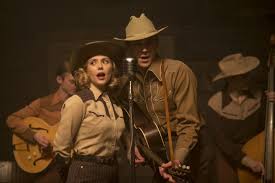As we enter Hollywood’s pre-summer drought, this last week saw the release of a couple indie biopics, which aim to explore the lives of two of America’s most conflicted and revolutionary musicians.
The first, *Born to Be Blue*, stars Ethan Hawke as troubled jazz trumpeter Chet Baker, whose documented struggles with alcohol and drug addiction riddled his career and saw him fall from the promise of superstardom to virtual irrelevance, and back again.
The second, sophomore director Marc Abraham’s I Saw the Light, features Tom Hiddleston as Hank Williams, whose music seamlessly bridged the gap between Blues and Country until his untimely death at the age of 29 due to drug–and–alcohol–induced heart failure.
Despite all the historical and factual makings of a stimulating music biopic, the movie fails to capture the passion and pain that have made Williams such an iconic character. It ends up leaving the audience with little more than a virtuoso performance by Hiddleston. [It is truly a shame his turn was wasted on a script as galumphing and altogether devoid of stakes as this one, since it is–as of yet–one of the year’s very best.]
The film follows Williams from his teenage time spent as bandleader for a local Montgomery, Alabama radio station to his time as one of the Grand Ole Opry’s most celebrated residents through his eventual dismissal and death. Hiddleston, who first appears on stage as an early 20-something, charms as a young Williams, despite all of the odds being stacked against him.
The film’s opening scene, a heartless and insipid depiction of Williams’s marriage to his first wife, Audrey (Elizabeth Olsen, younger sister of Ashley and Mary-Kate), is perfectly representative of the rest of the film’s humdrum narrative.
Viewers follow Williams through his ascent to the heights of musical stardom as he struggles with chronic back pain and the resulting bouts of alcoholism (or bouts of alcoholism and the resulting chronic back pain, one can’t be sure) witnessing, along the way, his repeated mistreatment of – and by – the various women in his life.
Along with Audrey, whose role both in actuality and in the film can be interpreted either as that of a blatant opportunist or a mere victim of Williams’s habitual abuse, the film’s female characters are where it should find most of its narrative drive but simply falls short.
Cherry Jones (most recently of Transparent, but a decorated veteran of Broadway) plays Williams’s embattled, coddling mother and delivers another strong performance despite director, producer, and screenwriter Marc Abraham’s repeated attempts to sabotage the film.
Simply put, Abraham—whose decades-long career as a producer and occasional writer and director is littered with unabashed cash-grabs such as Justin Timberlake’s *In Time*, *Thirteen Days*, and 2014’s notorious *RoboCop* remake—has no business on set. *I Saw the Light* shows glimpses of hope, but ultimately leaves the audience still searching for revelation.



